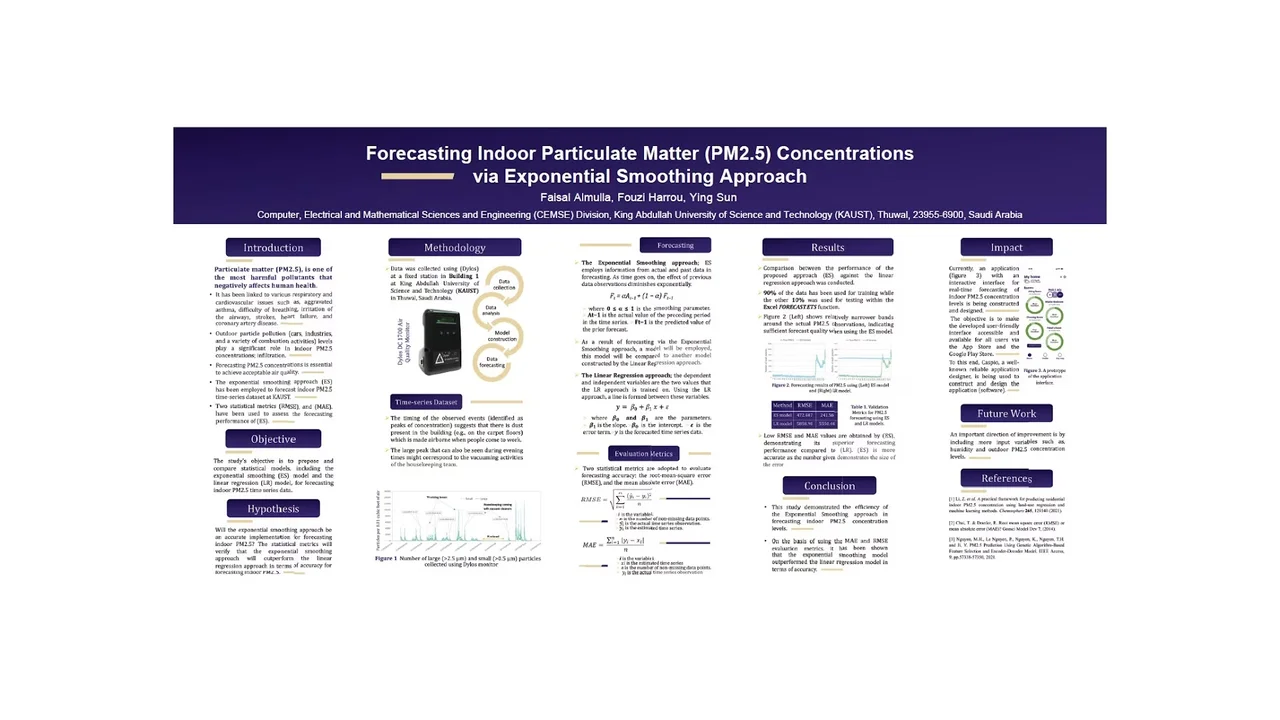
Faisal Almulla: Forecasting Indoor Particulate Matter (PM2.5) Concentrations via Exponential Smoothing Approach
- Faisal Almulla, SRSI, CEMSE, KAUST, KSA
KAUST Library
Overview
Forecasting indoor particulate matter (PM2.5) concentrations via exponential smoothing approach
Abstract
Particulate matter (PM2.5), is among the most harmful pollutants that negatively affect human health. It has been linked to various respiratory and cardiovascular problems such as coughing, aggravated asthma, strokes, heart failure, and irritation of the airways. Forecasting indoor PM2.5 concentrations is essential to achieve acceptable indoor air quality. In this study, exponential smoothing (ES)-based forecasting approach has been employed for the prediction of indoor PM2.5 concentrations. The performance of the ES model is verified via comparisons with the traditional linear regression model when forecasting indoor PM2.5 concentration time-series data at KAUST. The assessment is carried out using the mean absolute error (MAE) and the root mean square error (RMSE) statistical metrics. The Results showed the outperformance of the ES model for PM2.5 concentration forecasting over the linear regression model.
Brief Biography
Faisal Fadi Hasan Almulla, a twelfth grader in Riyadh schools, has experience in robotics {roboticts competitions and medals (gold, silver, and bronze), taken multiple coding and constructing courses in the Riyadh schools robotics club}. Practice in science communication skills (toastmasters program, IBDAA 2022 finalist). With will and determination, Faisal will put his name in the present history of artificial intelligence and will have a big impact on the entirety of humanity, for that impact will take life another step further.